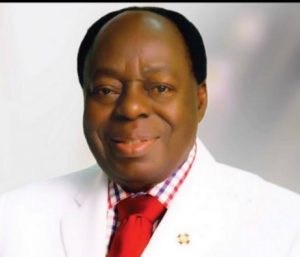 RELEVANCE OF SEPARATION OF POWERS AND ITS APPLICATION TO NIGERIA (4)
RELEVANCE OF SEPARATION OF POWERS AND ITS APPLICATION TO NIGERIA (4)
Democracy cannot survive let alone thrive in any country without lawyers particularly those in government and those serving political parties upholding the sanctity of rule of law. A proactive bar that is alive to its inherent responsibilities as a watchdog is a panacea to executive lawlessness. Unfortunately, we seem to have a paucity of that kind of lawyers these days. Rather, we now seem to have transactional lawyers whose main motive and sole motivation is materialism. This is in line with the thought of Caroline Kennnedy:"The bedrock of our democracy is the rule of law and that means we have an independent judiciary, judges who can make decision independent of the political winds that are blowing".
The doctrine of separation of powers does not insist that there should be three institutions of government each operating in isolation from each other. As previously mentioned, such an arrangement would be unworkable in modern time as it is essential that there be a sufficient interplay between each institution of the state and that there should be checks to ensure that no institution encroaches significantly upon the function of the other. Arbitrary and blatant interference by the executive or usurpation of the functions of the other institution by the other could result in legal and constitutional deadlock. Thus, one organ of the government should not interfere with any other organs of government. For example, the executive should not interfere in the administration of justice by the courts. The judiciary must not embark upon usurpation of executive or legislative function etc. in addition to this the principle of separation of powers mainly serves as a limitation on the scope of administrative law, by making court not to question the substance of administrative action, but only its legality. As far as a decision is taken by an agency, which is within its confines of power, courts should refrain themselves from reviewing that decision. Administrative action that is not beyond the limits of powers conferred on the decision maker is not the proper sphere for courts to intervene. If they intervene, it will be a violation of the powers since they are in effect, encroaching on the powers of the executive.
It can be strongly emphasized that the American presidential system, the model of which we seem to have adopted in Nigeria, is firmly based on the separation of powers and the independence of the judiciary.
In this regard, one cannot fail to appreciate that the concept of separation of powers offers the judiciary a protective device both for the protection of the independence of the judiciary and against allegation of judiciary intrusion into matters more appropriate to the legislature or the executive.
Accordingly, to deny the relevance and utility of some forms of separation of powers in any modern state that subscribes to universally recognized democratic principles and values, would be to misconstrue the evidence. There can be no gainsaying the point that the separation of powers is a veritable principle respected under the constitution of modern democratic states which exerts its influence on each of the fundamental institutions of the state.
Besides, we must acutely appreciate the wisdom in the aphorism that states that if men were angels, no government would be necessary; and if angels were to govern men, neither external nor internal controls of government would be necessary.
To accentuate and underscore the veracity of the foregoing, James Madison, in his The Federalist Papers No 51, has observed that:
In framing a government which is to be administered by men over men, the great difficulty lies in this: you must first enable the government to control the governed; and in the next place oblige it to control itself. A dependence on the people is no doubt, the primary control of the government, but experience has taught mankind the necessity of auxiliary precautions. This policy is supplying, by opposite and rival interest the defect of better motives, might be traced through the whole system of human affairs, private as well as public. We see it particularly displayed in all the subordinate distribution of powers where the constant aim is to divide and arrange the several offices in such a manner as that each may be a check on the other, that the private interest of every individual may be a sentinel over the public rights. These inventions of prudence cannot be less requisite in the distribution of the supreme powers of the state.
Therein lies the inherent justification of the over aching principles of check and balance which are veritably designed to maintain the system of separation of powers, keeping each branch in its place. This is based on the idea that it is not enough to separate the powers and guarantee their independence to give the various branches the constitutional means to defend their own legitimate powers from the encroachments of the other branches. In essence, they guarantee the powers of state to have the same weight (i.e. co-equal), that is, to be balanced, so that they can limit each other, avoiding the abuse of state powers, and in turn, the arrogance of power, which as we previously said, is the worst form of arrogance ever known to man, among the all kinds of arrogance that plague mankind.
Finally, whether all citizens must regard themselves as watchdogs of the independence of the judiciary. That is the only way to prevent any of the three arms of government from trampling on the powers of the other arms and indeed the only way to guarantee the independence of the judiciary. It is my hope that a nation Nigeria may yet evolve from the country Nigeria which in large measure still remains a mere geographical expression.
AARE AFE BABALOLA,OFR, CON, SAN, FCIArb,





